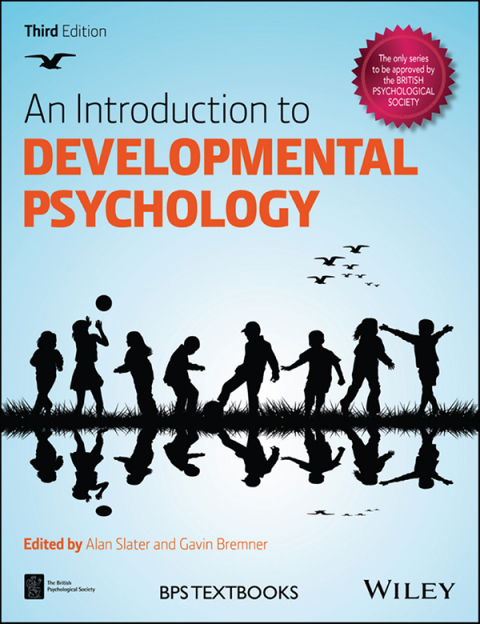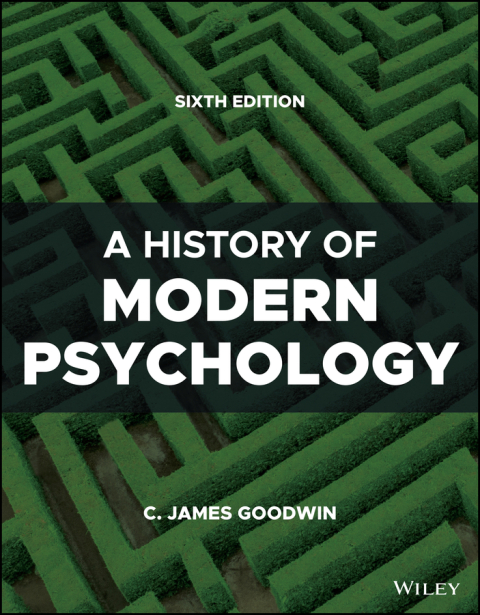Description
Efnisyfirlit
- Contributors
- Preface to Third Edition
- Part I Introduction
- 1 The Scope and Methods of Developmental Psychology
- Introduction
- Studying Changes With Age
- Concepts of Human Development
- Ways of Studying Development
- Beyond Common Sense: The Importance of Research Evidence
- Developmental Functions: Growing and Changing
- Summary and Conclusions
- Discussion Points
- Suggestions for Further Reading
- References
- 2 Pathology of Brain Aging
- Introduction
- Motor Development
- Cognitive Development
- Information Processing Approaches
- Social-Cognitive Development
- Ethology and Evolution
- Emotional Development
- Psychoanalytic Theories
- Humanistic Theory – Abraham Maslow
- Putting it all Together – Different Theories for Different Needs
- Issues in Child Development
- Summary and Conclusions
- Discussion Points
- Suggestions for Further Reading
- References
- 3 The Nature–Nurture Debate
- Introduction
- Cognitive Development
- Heritability
- Genetic Contributions to Cognitive Growth
- Environmental Influences on Cognitive Development
- Compensatory Education
- Summary and Conclusions
- Discussion Points
- Suggestions for Further Reading
- References
- Part II Infancy
- 4 Prenatal Development
- Introduction
- The Brain, The Spinal Cord and the Emergence of Mind
- Sensations
- Prenatal and Transnatal Auditory Learning
- Risks to Foetal Development
- Prenatal development of Postnatal Functions: The Bridge to Infancy
- Summary and Conclusions
- Discussion Points
- Suggestions for Further Reading
- References
- 5 Perception, Knowledge and Action in Infancy
- Introduction
- Visual Perception from Birth to Six Months
- Infants’ Perception of People
- Infants’ Knowledge of the World
- Later Work on Infant Cognition
- Object Search Revisited
- Summary and Conclusions
- Discussion Points
- Suggestions for Further Reading
- References
- 6 Emotional Development and Attachment Relationships
- Introduction
- Emotional Development
- Attachment Relationships
- Summary and Conclusions
- Discussion Points
- Suggestions for Further Reading
- References
- 7 Early Social Interactions with People and Objects
- Introduction
- First Encounters with Others: Biology is Socially Oriented
- Adult–Infant Interaction Becomes Mutual
- The Magic Number Three: Early Triadic Interactions with Others and Objects from the Beginning?
- Premature Babies, Incubator and the Kangaroo Experience
- Gestures to Communicate with Others
- Functional Permanence of Objects and Communicative-Educational Practices
- Symbolic Uses of Objects
- General Conclusions
- Acknowledgements
- Discussion Points
- Suggestions for Further Reading
- References
- 8 The Development of Self and Gender
- Introduction
- Existential Self
- The Development of Self-Awareness
- I am Me But Am i Worthy? The Study of Self-Esteem – Definition, Measurement and Origin
- The Power of Language
- Perception of Body Attractiveness
- Gender Identity Development
- The Chosen Categorical Self
- Summary and Conclusions
- Discussion Points
- Suggestions for Further Reading
- References
- Note
- Part III Childhood
- 9 Cognitive Development
- Introduction
- Piaget’s Cognitive-Developmental Theory
- Case’s Neo-Piagetian Theory
- Siegler’s Overlapping Waves Theory
- Vygotsky’s Sociocultural Perspective
- Theory of Core Knowledge
- Summary and Conclusions
- Discussion Points
- Suggestions for Further Reading
- References
- 10 The Development of Language
- Introduction
- What is Human Language?
- The Development of the Pragmatic System
- The Development of the Phonological System
- The Development of the Syntactic System
- The Acquisition of Word Meaning
- The Interaction of Language and Cognitive Development
- Summary and Conclusions
- Discussion Points
- Suggestions for Further Reading
- References
- 11 Acquiring a Theory of Mind
- Introduction
- When do Children Begin to Understand that People Hold Beliefs?
- Do Children Acquire a Theory of Mind?
- Is There a Developmental Stage?
- Signs of Competence During Infancy: Can Infants Understand False Belief?
- Adults’ Difficulty with False Beliefs
- Factors that Influence Development
- Autism
- What is the Purpose of a Theory of Mind?
- Summary and Conclusions
- Discussion Points
- Suggestions for Further Reading
- References
- 12 Reading and Mathematics in Developmental Psychology
- Introduction
- Reading and Writing
- Conditional Spelling Rules
- Number and Counting
- Number as a Cultural Tool
- Logic in the Understanding of Number
- Summary and Conclusions
- Discussion Points
- Suggestions for Further Reading
- References
- 13 Memory Development and Eyewitness Testimony
- Introduction
- The Development of Memory
- The Memory Process
- Four Factors that Influence the Development of Memory: Knowledge, Strategies, Metamemory and Culture
- Children’s Eyewitness Testimony
- Summary and Conclusions
- Discussion Points
- Suggestions for Further Reading
- References
- 14 Play and the Beginnings of peer relationships
- Introduction
- Early Peer Relationships
- The Beginnings of Play
- The Growth of Social Participation
- Functions of Play
- Social Status and Sociometry: The Measurement of Social Relationships in the Peer Group
- Friendship
- Sex Differences in Play and Social Behaviour
- Ethnicity
- Summary and Conclusions
- Discussion Points
- Suggestions for Further Reading
- References
- 15 Prosocial Tendencies, Antisocial Behaviour and Moral Development in Childhood
- Introduction
- What do Prosocial and Antisocial Mean?
- Preview of the Research Review
- The Developmental Trajectory of Prosocial and Antisocial Behaviour and Thought
- Social Influences on Prosocial and Antisocial Development
- Development Within Relationships
- Culture and Development
- Summary and Conclusions
- Discussion Points
- Suggestions for Further Reading
- References
- Part IV Adolescence
- 16 Cognitive Development in Adolescence
- Introduction
- Perception and Attention
- Speed of Processing
- Memory
- Intelligence
- Reasoning
- Formal Operational Thinking
- Controversies About Piaget’s Theory and Research Regarding Formal Operational Thought
- Beyond Piaget’s Theory
- Summary and Conclusions
- Discussion Points
- Suggestions for Further Reading
- References
- 17 Social Development
- Introduction
- Key Characteristics of Development
- G. Stanley Hall: Adolescence as Storm and Stress
- The Adolescent Social Environment: Kurt Lewin
- Puberty and Psychological Development: The Work of Anna Freud
- The Family and Adolescence: The Work of Peter Blos
- Peer Relations: The Ideas of Harry Stack Sullivan
- Erik Erikson and the Development of Identity in Adolescence
- Summary and Conclusions
- Discussion Points
- Suggestions for Further Reading
- References
- Part V Practical Issues
- 18 Educational Implications
- Introduction
- Child-Centred Psychology and Education
- Social Interaction, Learning And Development
- Psychology, Schools and Educational Reform
- Summary and Conclusions
- Discussion Points
- Suggestions for Further Reading
- References
- 19 Risk and Resilience in Development
- Introduction
- Historical Background
- Risk Factors
- Measurement of Risk
- Protective/Vulnerability Factors
- Theoretical Models of Risk and Resilience
- Developmental Outcomes: Competence and Maladjustment
- Contributions of Risk and Resilience Research to the Design of Successful Interventions
- Summary and Conclusions
- Discussion Points
- Suggestions for Further Reading
- References
- 20 Social problems in schools
- Introduction
- The School Context
- Victimisation and Bullying in School
- Interventions to Reduce Bullying
- School refusal
- Summary and Conclusions
- Discussion Points
- Suggestions for Further Reading
- References
- 21 Atypical development
- Introduction
- What is Atypical Development?
- Why Study Atypical Development?
- Methodological Approaches Used in the Study of Atypical Development
- Impact of Scientific Discovery and Technological Innovation on the Study of Pathways in Atypical Development
- Understanding Atypical Pathways
- Impact of the Absence of a Sensory Input on Developmental Pathways
- Environmental Risk Factors: The Case of Emotional Disturbance
- Summary and Conclusions
- Discussion Points
- Suggestions for Further Reading
- References
- Glossary
- Names Index
- Subject Index
- EULA






Reviews
There are no reviews yet.